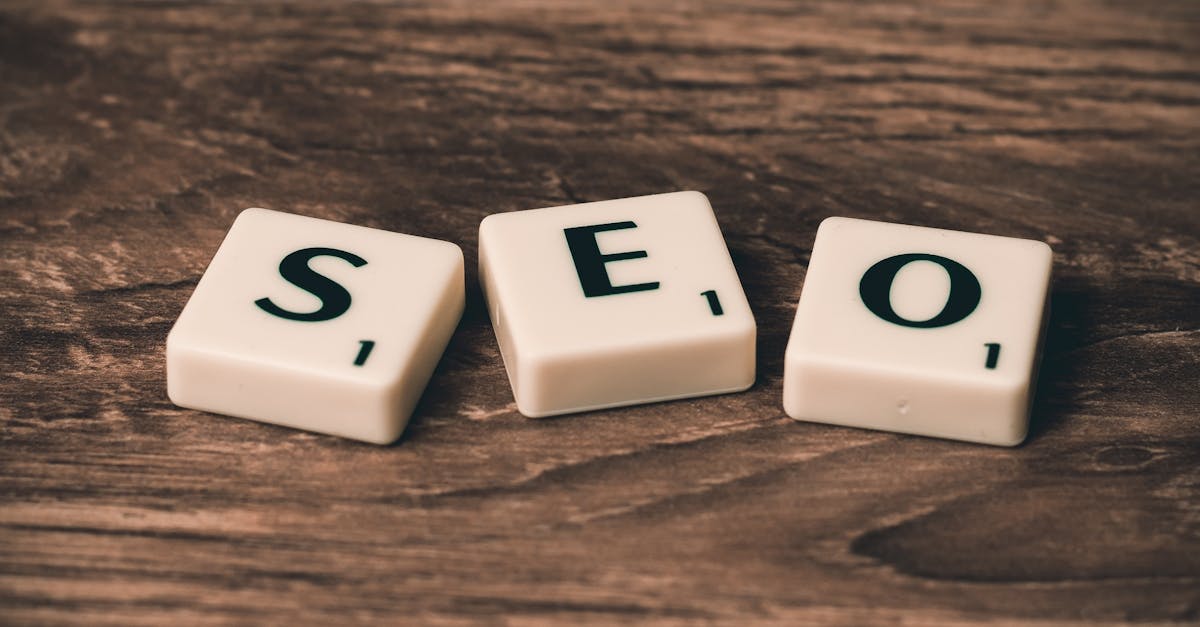
Table Of Contents
Skill Sets Required for Programming
Programming requires a solid foundation in problem-solving and analytical thinking. These skills enable individuals to break down complex tasks into manageable steps, fostering a systematic approach to coding. Understanding algorithms and data structures is also essential, as they form the backbone of efficient programming. Proficiency in mathematics can be beneficial, particularly when dealing with functions and logic.
Another critical aspect of programming is familiarity with various programming languages. Different languages serve distinct purposes, from Python's simplicity for beginners to C++'s power for system-level programming. Additionally, knowledge of tools and frameworks can significantly enhance productivity, enabling programmers to tackle a wide range of projects. As the demand for Web Design and Development continues to grow, having a versatile skill set becomes increasingly valuable in today’s tech landscape.
Languages and Tools to Master
To embark on a journey in programming, you’ll need to become proficient in various languages and tools. Common programming languages include Python, Java, and C++. Each language serves a unique purpose, making it essential to choose based on your specific goals. Familiarity with development environments and version control tools like Git will also bolster your skills, enabling you to write cleaner code and collaborate with others effectively.
In contrast, web development requires a different set of languages and tools. HTML, CSS, and JavaScript form the foundation of front-end development, while back-end development often involves working with languages like PHP or Node.js. Mastering frameworks such as React or Angular can elevate your web design and development capabilities, making your projects more robust and interactive. Understanding these technologies is crucial for building responsive and functional websites that provide seamless user experiences.
Skill Sets Required for Web Development
Understanding the skill sets required for web development is crucial for anyone looking to enter this field. At its core, web development encompasses both technical and creative skills, as it combines programming with an eye for design. Knowledge of HTML, CSS, and JavaScript forms the foundation of front-end development. Familiarity with frameworks like React or Vue can also enhance a developer's efficiency. For the back-end, skills in languages such as Python or PHP, along with database management using SQL, are essential. Tools for version control, like Git, play a vital role in collaborative projects.
Web design and development also requires an appreciation for user experience (UX) principles and responsive design. Understanding how users interact with websites helps developers create engaging interfaces that serve the intended audience effectively. Familiarity with content management systems (CMS) such as WordPress or Shopify can streamline the process for many projects. Moreover, the ability to troubleshoot and optimise websites for performance is increasingly important in a competitive landscape. Balancing these technical abilities with a creative mindset can lead to successful outcomes in web development ventures.
Frontend vs Backend Technologies
When considering web design and development, it's essential to understand the distinct roles of front-end and back-end technologies. Front-end development focuses on the visual aspects of a website, involving languages like HTML, CSS, and JavaScript. This area is where developers create the interfaces users interact with, ensuring an engaging and responsive experience. Knowledge of frameworks such as React or Vue can further enhance a developer's ability to build dynamic applications, making the user journey seamless and intuitive.
On the other hand, back-end development is concerned with the server-side of web applications. This includes managing databases, server configuration, and application logic. Languages like Python, Ruby, and PHP are frequently used to build the back-end components that process requests and serve data to the front end. Understanding how to integrate front-end and back-end technologies is crucial for delivering a cohesive web design and development experience, as each side relies on the other to function effectively.
Time Commitment for Each Discipline
When considering a journey into programming, it’s essential to acknowledge the time commitment involved. Mastering languages such as Python or Java can take several months of consistent study and practice. The complexity of projects can vary significantly, resulting in a steep learning curve for some. Aspiring programmers often find themselves dedicating time not only to learning syntax and algorithms but also to engaging with concepts like data structures and system design.
On the other hand, web development requires a different, yet substantial, investment of time. Learning both front-end and back-end technologies means comprehending various tools and frameworks specific to Web Design and Development. The nature of web projects might range from simple websites to complex web applications, requiring varying degrees of proficiency and time. As technology rapidly evolves, staying updated poses a continuous challenge for web developers, further extending their learning journey.
Learning Curves and Project Complexity
When considering the learning curves for programming and web development, it's essential to recognise that both paths present unique challenges. Programming often involves a deeper understanding of algorithms, data structures, and problem-solving methods. The complexity of projects can vary significantly; simple scripts may require less effort, while larger software applications can become quite intricate, demanding not only coding skills but also critical thinking and systematic approaches.
In contrast, web design and development tends to focus on creating user-friendly interfaces and responsiveness across different devices. Front-end technologies require knowledge of HTML, CSS, and JavaScript, while back-end development often involves databases and server-side languages. As you delve into web development, project complexity can increase with the introduction of frameworks and libraries. Mastering these elements is crucial for building scalable applications, making the journey both rewarding and multifaceted.
FAQS
What is the main difference between programming and web development?
Programming primarily focuses on creating software applications and algorithms, while web development involves building and maintaining websites and web applications, often incorporating both front-end and back-end technologies.
Do I need to learn programming before I start web development?
While it's not strictly necessary, having a foundation in programming can greatly enhance your web development skills. Understanding programming concepts can help you grasp how web applications operate and improve your problem-solving abilities.
What programming languages should I learn for web development?
For front-end development, HTML, CSS, and JavaScript are essential. For back-end development, languages like Python, Ruby, PHP, or Java are commonly used. Understanding databases and SQL is also beneficial.
How long does it take to become proficient in programming or web development?
The time commitment varies. Generally, it may take several months to a few years to become proficient, depending on your prior knowledge, dedication, and the complexity of the projects you undertake.
Is web development a good career choice compared to programming?
Both fields offer strong career opportunities, but the choice depends on your interests. If you enjoy creating user interfaces and working closely with design, web development might suit you. If you prefer problem-solving and building algorithms, programming could be the better fit.

















































